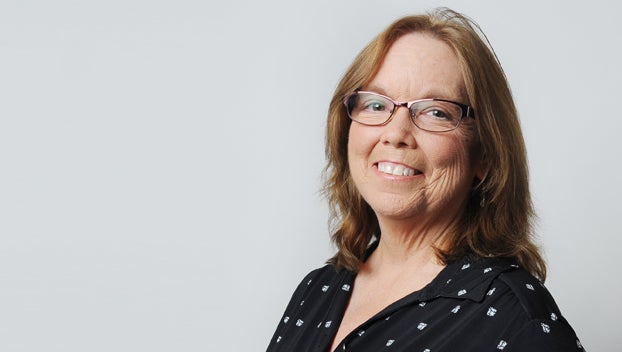Breast cancer survivor celebrates 22 years of being in remission
Published 12:18 am Friday, October 13, 2017

- Charlene Rushing has been in remission from breast cancer for 22 years. (Nicole Hester | The Natchez Democrat)
NATCHEZ — For breast cancer survivor Charlene Rushing, hope came in the form of a rose on June 20, 1995.
On the same day Rushing was scheduled to have a surgical biopsy, the one extra rose she received from her husband for their anniversary offered faith for their future together.
“It was my 14th wedding anniversary that day,” Rushing said. “He sent 15 roses instead of 14 as a way of saying, ‘We are going to make it.’”
Rushing was only 34 years old when she was diagnosed, which she believed was too young to have a scheduled mammogram
But that changed when Rushing felt a lump while showering.
“I was not normally one to go to the doctor for every little thing, but I knew breast cancer was not a thing to play around with,” Rushing said.
Rushing said the doctor said one option was to just watch it over a time period, since she was so young. But ultimately, the doctor decided to schedule her for a mammogram.
“Luckily he did that, even though I was that young,” Rushing said. “The mammogram report came back suspicious.”
Rushing first had a needle biopsy examining the fluid, though the results made it look like she was in the clear. Rushing said she and her family thought the worries might be over, but she still had the surgical biopsy to go.
“Two weeks later, we received the shock of our lives,” she said.
Within a month from the surgical biopsy determining Rushing had cancer, she had a mastectomy and began getting ready for chemotherapy.
“I am thankful I was eligible for chemotherapy, even though I was sick for 9 months,” Rushing said. “I think it saved my life.”
Rushing worked at The Natchez Democrat in classifieds at the time. Even though she was going through chemotherapy, she did not take many days off.
“I took my first day of chemotherapy off because I did not know how I would react,” she said. “You do not get sick instantly. Though I do remember going to Jackson for some ad awards, and I was so sick.”
Rushing said her bosses were very understanding and supportive during that time period. “Working kept me in a routine,” Rushing said. “It kept my mind off it. In addition, I had young children. It helped me not focus on the worst part of it.”
Being around people — though she was susceptible to germs and did at one point end up with a 105-degree fever — was also a blessing. That included her church family at Our Lady of Lourdes in Vidalia, as parishioners brought her lunch and dinner for two weeks after her surgery.
“People were so good to me I felt like I had no right to not make it,” Rushing said. “It is really remarkable how during a tragedy you see the good in people.”
Her last round of chemotherapy was on March 12, 1996.
“I have been in remission for 22 years,” she said.
Later in 1996, she would go on to co-found the Miss-Lou Relay For Life with Julie Biglane.
“We held it at the Natchez Mall and raised $22,000 that first year,” Rushing said. “That was remarkable because at the time no one really knew what it was.”
While Rushing was going through treatment, her children were ages 9, 7 and 2. Rushing said she did not hide anything from them. Rushing told them she might die, but that was not her intent.
“When my 7-year-old had made it to high school, the school asked her to talk to someone whose mother had just been diagnosed,” Rushing said. “But she said she did not know what to say. It was just part of her life — she had never felt afraid.
“They were so young. They realize it is a big deal now, but at the time, because I survived, it was just a part of their life.”
Her then 7-year-old, Ariel Evans, is now 29-year-old and is a teacher at West Elementary School. The rule for someone who had an immediate relative diagnosed is to start getting checked 5 years before you are the age the relative was diagnosed.
Evans, who is working on a breast cancer awareness display for her classroom, now falls into that rule.
“My daughter is scheduled for a mammogram,” Rushing said. “I am not scared, but it is hard to imagine that 7-year-old now has to be concerned because of my diagnosis.
“I feel comfortable, but we have to be on our A game.”
Rushing said it is important for everyone to be on guard against cancer, as early detection is likely what saved her life since cancer can be more aggressive when it strikes a person who is younger.
“Know your body, and when you notice a change, it is important to get it checked,” Rushing said. “They say to start getting checked when you are 40. But for me, if I had waited until I was even 35, it would have been too late.”
While she was going through treatment, Rushing said her husband, Kenny, worried, but as noted by the 15 roses, he was 100 percent supportive. Through other health concerns, Rushing said they have continued to be supportive of each other.
“He cut the grass a lot during that time,” Rushing said. “I think it was a way to go outside and try to think.
“Some marriages, when you go through a struggle like that, it can push you closer together or further apart. We have been pretty solid. We have held each other up.”






